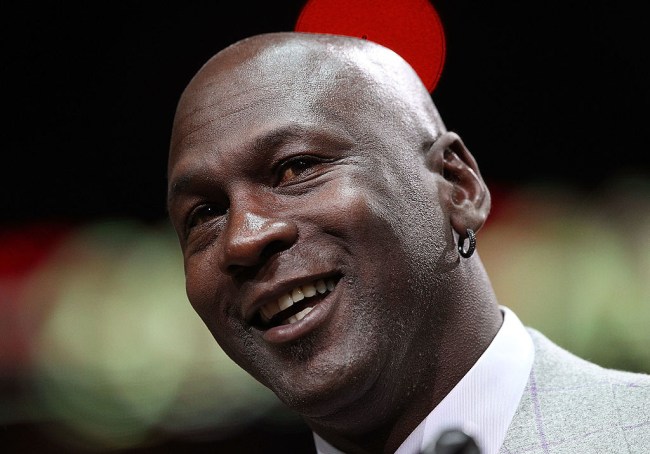Split 8s
Sometimes we split pairs to turn a losing situation into a winner — that's playing offense. When we split 8s against a dealer's 6, that's just what we're doing. If we don't split the pair, we have two options. We can stand, and hope the dealer busts. Split Eights is closed for the winter. We look forward to seeing you when we reopen! In the meantime, stay safe, friends & neighbors! Thank you for your support. The only time I would ever think you could justify not splitting 8s is if you're counting and the count is really negative AND it's late in the shoe. And if the count ever got negative enough for you to attempt this, chances are you've probably already walked away from the table due to the poor count. So yes, always split 8s against a 10. A split pair of eights is expected to win against dealer upcards of 2 through 7 and to lose less against dealer upcards of 8 through ace. If a player hits on a pair of eights, he is expected to lose $52 for a $100 bet. If the player splits the eights, he is expected to lose only $43 for a $100 bet.
FACTS OF SPLITTING 8s AGAINST A 10
By Henry Tamburin
The May 2009 issue of Casino Player magazine contains an interview with gambling writer and maverick John Patrick, who advocates an “unorthodox” approach to gambling. In the interview, Patrick offers this explanation (in his words) as to why he wouldn’t split a pair of 8s against a dealer 10 and instead would surrender the hand:
Split Squat

“If you’re playing blackjack for $10 a hand and you are dealt two eights and the dealer has a king showing, the book says to split. So you split and you put another $10 up there. Now, there’re gonna give you a card on each eight, which means you have one eight with a card for $10, and another eight with another card for $10. The dealer still has that king showing. How have you improved your situation? Why would you take a bad hand of two eights and turn it into two bad hands, when you admittedly are inferior to the dealer’s hand?” Patrick then goes on to say that if he were dealt this hand, “I’d surrender. I’m gonna lose that with two eights. I give it up. I tell the dealer, “Go ahead, take half my bet.” I’d rather play a hand I’m going to win.”
On the surface, Patrick’s analysis of splitting 8s against a 10 seems convincing. In fact, most players agree with Patrick and would never split. Unfortunately, that’s a big mistake, and here’s why.
There is no question that the dealer has the upper hand when you hold a pair of 8s against her 10. The math says she’ll make a pat (17-21) hand about 77 percent of the time (assuming she doesn’t have a blackjack), and she has only a 23 percent chance of busting. So, there is no argument here: you are the underdog, period. But, what Patrick and others fail to grasp is the following:
When To Split 8s
Even though you are the underdog when you are dealt a pair of 8s against a dealer 10, you are less of an underdog when you split the 8s and play two hands with an 8 on each hand.
So, the real question that you should ask yourself is this: If I’m going to lose money on this hand no matter how I play it (and you will), which strategy cuts my losses? Is it hitting, standing, splitting, or as Patrick suggests, throwing in the towel and surrendering?
The only way to know for sure which strategy is best is to calculate in dollars how much you can expect to lose using each strategy and then compare the results. Agreed? And the math to do this calculation is, surprisingly, quite simple. (For the following analysis, I assumed a standard game: 6-deck, s17, das, and resplitting allowed up to four hands.)
What we positively, absolutely, know about hitting or standing on 16 against a dealer 10 is this: on average you will win this hand only 23 times out of 100 (hey, I told you this was a bad hand). (Note: The actual win percent to two decimal places is 23.22 for hitting and 23.16 for standing, which is why basic strategy says to hit 16, when it is 10-6 or 9-7, against a 10). But when your 16 happens to be a pair of 8s, you have an escape: you can split and play each 8 against the 10. Why would you want to do this? Because when you play an 8 against a 10, you stand to win this hand more times ... 38 times, in fact, out of 100 (still a bad hand but better than playing a 16 against a 10). And here’s the key, and what Patrick and others fail to understand: Playing two hands of 8 against a 10 will lose less money than playing one hand of 16 against a 10. Can I repeat that again ... it’s cheaper to play an 8 against a 10 twice than to play the pair of 8s against a 10 once!
Wow, that was a bombshell I just dropped, and I’m sure you’re all saying, “Yeah, right Tamburin, now prove it!” So, let’s do it.
Let’s first look at hitting or standing on 16 against a 10. If you win 23 hands out of 100, this means you’ll lose 77 hands and have a net loss of 54 hands. So, if you were to bet $10 on each hand, you would wind up with a net loss of $540 after 100 hands. With me?
Now let’s look at the scenario of splitting the 8s and playing each 8 against a 10. Here you’ll win 38 hands and lose 62 hands resulting in a net loss of 24 hands. At $10 wagered per hand, your net loss is $240. Double that and your total loss is $480, which is $60 less than hitting or standing. Voilá, I told you so: playing an 8 against a 10 twice (which is what you do when you split 8s) is cheaper than playing a 16 against a 10 only once!
The fourth playing option that Patrick proposed is to surrender the hand. The arithmetic of surrender is pretty easy: you automatically lose half your bet on every hand. So, after 100 hands, your net loss if you surrendered the 8s all the time would be $500; therefore, Patrick’s option costs you $20 more than splitting.
So let’s summarize the losses after 100 hands for each playing option:
- If you hit, you’ll lose on average $540.
- If you stand, you’ll lose on average $540.
- If you surrender, you’ll lose exactly $500.
- If you split, you’ll lose on average only $480.
It’s clear that no matter what strategy you use, you are going to lose money when you hold 8s against a 10. But ... here’s the key ... you’ll save more money in the long run if you split.
I know that every once in a while you are going to lose both of your split hands and feel lousy about it (been there, done that). If it’s any consolation, keep this thought in mind when it occurs: You made the mathematically correct play holding a lousy hand, and in the long run, you’ll wind up with more money in your pocket compared to playing the hand any other way.
So now that you’ve read the math-based analysis on how to play a pair of 8s against a 10, are you still going to follow Patrick’s advice and surrender? Or have I convinced you to split? I’m waiting.
(Note: For the purists who are reading this, there are, in fact, a few rare games where surrendering 8s against a 10 is the mathematically correct play, and that’s in 2-, 4-, 6- and 8-deck games where the rules specify that the dealer must hit soft 17 and double-down after pair splitting is not allowed. But these are terrible games that you shouldn’t be playing in the first place. In all other games, splitting 8s against the 10 is the best strategy.)
Table of Contents
When it comes to trying to beat the house and get an edge at the blackjack tables, you’ll need to follow basic blackjack strategy, part of which involves splitting certain hands to maximise your opportunities to win against the dealer’s hand.
Do You Always Split 8s In Blackjack
Two specific hands that we’re going to discuss in this guide are pairs of Aces and pairs of eights. Both of these should always be split into two hands when dealt to you by the dealer – or so they say.
Who says splitting Aces and 8s is something you should do?
Who says so? Well, pretty much all avid blackjack players out there, including Edward O. Thorp in his legendary book Beat the Dealer, which has been making waves ever since 1962. Why? Because maths, and therefore basic blackjack strategy, say so.
However, if you don’t trust this advice and want to know more about the facts and figures behind splitting Aces and eights when playing blackjack online at sites like Betsson, read on as we delve deeper into the pros and cons of splitting Aces and eights.
Why is splitting Aces in blackjack a sound move?
When you think about it carefully, being dealt a pair of Aces in blackjack – online or offline – is probably one of the poorest hands you could possibly receive. It holds a value of either 2 or a soft 12, accordingly.
The problem is that if you take a third card, there is almost a 33% probability of going bust given there are a minimum of 16 cards left in the deck that are worth ten points, which means you could bust your hand from 12 to 22. However, when you split these two Aces, you are left with two hands of either 1 or 11, which gives you a 33% shot of landing 21 with your next card.
Split Second
Why are beginners uneager to split in blackjack?
To some beginners to playing blackjack online or offline, splitting hands and playing with multiple hands at once can feel like a daunting prospect.
Why? Because you must pay for the privilege of splitting, which can feel risky to newcomers – particularly those who are worried that they might not have the bankroll to handle the minimum bets over the long term.
Is it worth learning to split as a new blackjack online player?
In short, yes. We’re here to reinforce that splitting Aces and eights is the right play to make. If you don’t choose to split Aces for fear of risking too much per game, you’re handing over a huge advantage to the house.
By splitting your Aces, you are giving yourself almost a 33% chance of at least one of your hands receiving a second card worth ten points, giving you 21 and a virtually unassailable score – unless the dealer also has 21 and you tie or ‘push’, which can still be to your advantage, depending on the particular rules of the blackjack variant you’re playing.
Why does splitting 8s in blackjack make sense?
Handling a pair of eights can also bring out beginner blackjack players into a cold sweat. When it comes to blackjack split rules, though, eights should largely be recognised as an instant split, just like Aces.
When you think about it, a pair of eights leaves you with an uncomfortable hand worth 16. Basic blackjack strategy suggests that you only stand on hands worth 17 or more, especially if the dealer’s face-up card is worth 7 or more. If you stand on a hand worth 16, the dealer is statistically likely to beat you. Furthermore, for those of you who like taking risks, if you hit and take a third card in this scenario, then chances are you will go over 21 and bust, because of the sheer number of cards left in the deck that count as ten.
What is the probability of hitting a 10 after splitting 8s?

By splitting a pair of eights into two new hands, you’ll have two starting hands with a value of 8 each. Again, this gives you around a 33% shot of landing a ten or face card to turn one of your hands from 8 into 18, which is a solid hand to stand on in most blackjack split scenarios.
It’s also possible to land a nine, thus changing your hand value from 8 to 17, which can sometimes lead to a push or even a win if the dealer busts.
Are there any restrictions to splitting 8s?
While some casinos will restrict you to just one additional card when you split Aces, there are no such restrictions when you split eights.
That’s great news because, in the event that you receive a two or a three, you can still hit 21 by landing a 10 with your third card. Don’t be afraid to pay double to split your hands, as this will open a host of possibilities compared to standing on 16 and leaving your hand open to an easy defeat by the dealer.
Is splitting Aces and 8s always a good idea?
Although most of the time splitting Aces and eights is the right play when it comes to using sound casino blackjack strategy, there are some rare instances when deviating from this approach can pay dividends.
The biggest exception to the rule is when you are devoting your attention to counting cards at the table. What do we mean by counting cards? It’s a technique that some experienced blackjack players employ to determine whether there are more high-value or low-value cards remaining in the deck. This can allow players to size their bets correctly, taking advantage of calculating the probability of winning the next hand.
Should you split Aces when card counting in blackjack?
One of the rare occasions when someone counting cards may hit a pair of Aces rather than split them is if the deck count is negative and the dealer’s up card is an eight, nine or ten. A negative card count means there are not as many tens remaining in the deck, making it more likely that you will hit a lower-value card and improve the value of your hand without going bust.
Should you split 8s when card counting in blackjack?
If the deck count is positive – meaning there are more tens in the deck than usual – some may also opt against splitting eights, especially when the dealer’s up card is something like a five or a six. With more tens in the deck, there is a higher chance of the dealer busting their hand from 5 or 6 to 25 or 26 in the space of two cards.
Should a negative deck count affect your decision to split Aces?
Another scenario when splitting Aces is not such a good idea is when the dealer’s up card is worth 10 and you are holding a pair of Aces.

Particularly if the deck count is negative, the only chance you will have of winning by splitting those Aces is landing a ten for each hand. But, if the deck count is negative, you know there aren’t many tens left. In this instance, many blackjack pros prefer to play the soft 12 and take another card in the hope that it’s a six, seven or eight that will improve their hand without going bust.
Hopefully, this guide gives you the confidence to know when to split Aces and eights when you play blackjack online here at Betsson Casino. We have a wealth of blackjack variants you can explore and enjoy on our site. Just take your pick and good luck implementing your newfound knowledge!